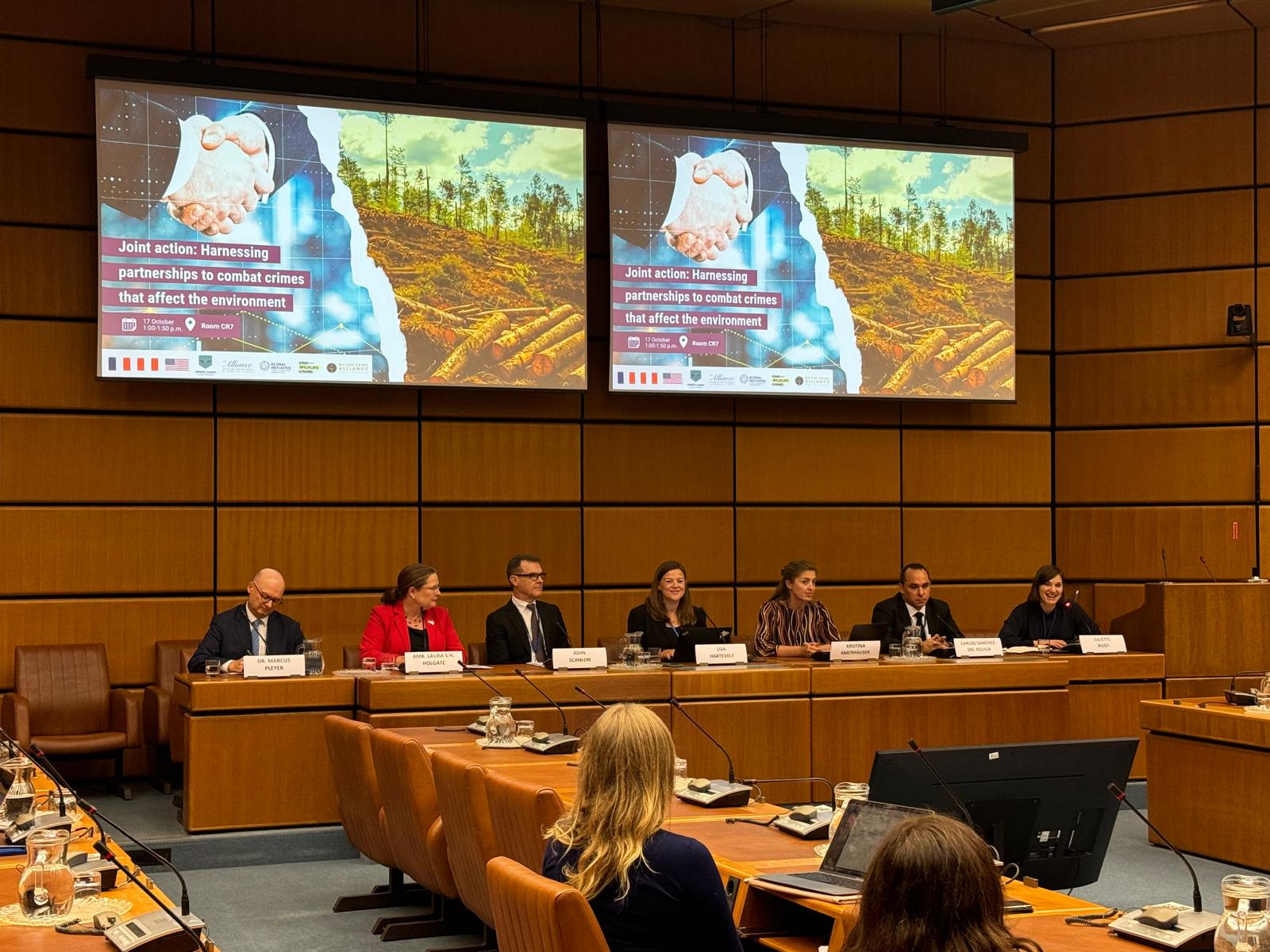Value of multi-sector partnerships in fighting nature crime highlighted during UNTOC COP

The transnational and organised nature of environmental crimes, which often include financial offences and corruption, has made the issue a priority for the global Financial Action Task Force (FATF), according to its former President, Dr Marcus Pleyer.
Speaking at the UN Convention Against Transnational Organised Crime (UNTOC) 12th Conference of the Parties (COP12) in Vienna, Pleyer – who headed FATF between 2020 and 2022 – highlighted the scale of these crimes.
“The amount of money that is laundered from environmental crimes is nearly $300 billion a year,” he said. “This is why we have put environmental crimes on our agenda.”
Pleyer was speaking at an official UNTOC COP12 side event held in partnership between the governments of France, Peru, and the United States, as well as the Wildlife Justice Commission, the Alliance of NGOs on Crime Prevention and Criminal Justice, the Global Initiative to End Wildlife Crime (EWC), Global Initiative against Transnational Organized Crime (GI-TOC), and the Nature Crime Alliance.
Moderated by Lisa Hartevelt, Director of External Affairs, WJC, ‘Joint Action: Harnessing partnerships to combat crimes that affect the environment’, had the purpose of highlighting the critical role that civil society organisations (CSOs) play in supporting state parties to the UNTOC in combatting crimes that affect the environment.
Watch the session in full
In the opening remarks of the event, the Co-Chairs of the Group of Friends on Crimes that Affect the Environment, Juliette Bigot from the Permanent Mission of France and Carlos Sanchez del Aguila from the Permanent Mission of Peru, highlighted how their partnership with CSOs was fundamental in increasing awareness of these crimes and the need for international action.
Increasing engagement between governments, civil society and other sectors, including finance, is a key aim of the Nature Crime Alliance, which supports the Global Private Sector Dialogue (PSD) on financial crimes linked to crimes that affect the environment, in partnership with UNODC, INTERPOL, and UFW.
Dr Pleyer, who currently serves as Deputy Director General, Germany’s Federal Ministry of Finance, and Chairs the European iteration of the PSD, underscored the importance of the Dialogues, noting that prior to the initiative, 80% of private financial participants did not interact with law enforcement and government authorities, and 66% did not interact with NGOs.
The session also heard from John Scanlon, Chair of the Global Initiative to End Wildlife Crime (EWC), a founding member of the Nature Crime Alliance, and Sarah Maston, Co-Chair of the EWC’s Impact Technology Champions. Scanlon and Maston remarked upon the pressing need for scale in conservation technology. Further highlighting the need for collaboration between different stakeholders, Kristina Amerhauser, Senior Analyst at GI-TOC, spoke of the ECO-SOLVE platform. This platform facilitates OSINT data-sharing to law enforcement, government, and private sector actors, since lack of data is one of the most common problems stakeholders face when combatting crimes that affect the environment.
Final remarks were delivered by Laura Holgate, US Ambassador to the Vienna Office of the UN. She spoke of the US government’s role in funding the Nature Crime Alliance as recognition of the role that CSOs can play in bringing cross-sectoral stakeholders together for effective results.

